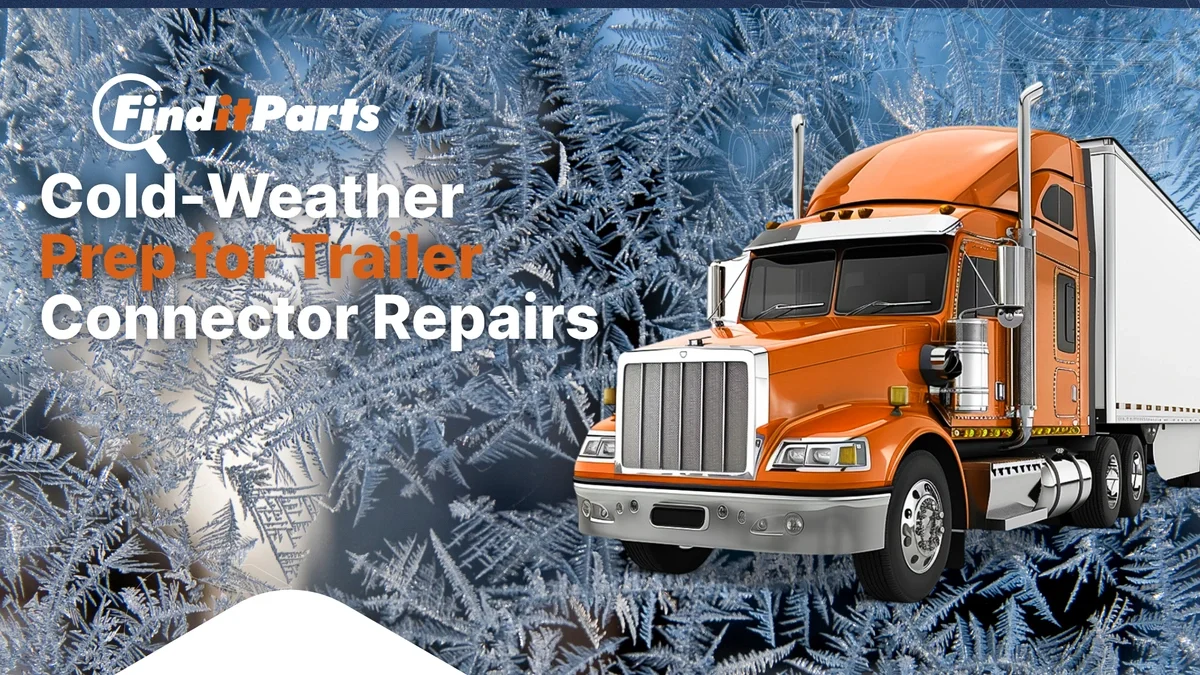Need help? We're here!
(888) 312-8812 Login Signup7 Helpful Tips to Prepare Your Heavy Duty Truck for Summer
June 17, 2021

Trucking during summer may not be as difficult as truck driving during the winter months. However, that does not mean summer truck driving does not pose challenges that require specific precautions. In some areas, the summer temperature can go above +100, and this proves to be a challenge to most truckers because the heat and direct sunlight can sometimes be unforgiving.
Whether you are new to truck driving or not, it’s always best to do the necessary preparations to keep your heavy duty truck on the road longer during summer. Here are seven helpful tips to make your truck summer-ready to hit the road.
- Check Your Tires
In general, your truck's tires lose or gain 1 PSI (pound per square inch) for every 10 degrees Fahrenheit temperature change. So during summer, heat can have a significant effect on your tires because when the temperature increases, the air pressure in your tires also goes up. This increase in air pressure can cause your tires to wear prematurely, interfere with braking, and, worst, pop unexpectedly.
To avoid the consequences of overinflated tires, make sure to check your tires and see to it that they are inflated at the correct level. Don't just rely on your truck's Tire Pressure Monitoring System (TPMS) because, more often than not, it will not warn you if the tire pressure is too high. You can always go old-school with a manual tire pressure gauge. This accurately tells you if your tires are overinflated from the heat.
Aside from checking the tire pressure, it’s also important to check your tires’ tread depth to ensure you have adequate traction and a lower risk of flats. If your tire’s tread depth is below the recommended legal limit, then it’s best to replace it before you go for long-distance drives.
Getting ahead of seasonal maintenance and parts ensures you’re not caught off guard by summer-related wear and tear.
- Inspect Your Cooling System
The engine cooling system plays a crucial function: keeping the engine temperature within the normal operating range, preventing the engine from overheating. It even has to work doubly hard during summer to dissipate the heat generated by high temperatures and ensure that the vehicle faces them in the best possible conditions. That is why, before the first heat wave strikes, take the time to inspect your cooling system starting from the radiator.
The radiator functions by lowering the temperature of the hot liquid coming from the engine and returning it cooled. Over time, this can get clogged due to corrosion, debris, and internal deposit buildup. When this happens, the entire cooling system becomes compromised. The same is true when it leaks. So make certain your radiator is not clogged and all the engine hoses and belts are in good working order to avoid a leaking radiator.
- Top Off Engine Oil And Other Fluids
Do temperatures impact lubrication? Definitely, yes! This is especially true in areas where the climate can swing from freezing winters to hot summers, such as Chicago, Illinois. While it's always a good idea to consult your owner's manual for the type of oil that works best for your engine, it will get the best protection in the summer when you use a slightly thicker grade of engine oil. Of course, you can always revert to a lighter, thinner oil during the colder months to help preserve gas mileage.
Apart from the engine oil, you must also check other fluids, including the coolant, transmission fluid, windshield washer fluid, and brake fluid. Change them if necessary, and make sure they are at the right level. If they are below the recommended level, then top them up.
Taking time to summer-ize your fleet properly helps prevent costly breakdowns and ensures your trucks stay in peak condition all season long.
- Invest In High-Quality Filters
While checking and replacing the engine oil and all the other fluids in your truck, why not change the filters as well? The oil filter, for one, is essential for engine longevity. So, be sure to invest in a high-quality engine oil filter that better catches and holds debris and other contaminants.
Other filters that you must consider replacing are the air filter, fuel filter, and cabin filter. While it’s quite tempting to pick the cheapest filters possible, it won’t come as a surprise when these filters don’t perform well and last as long as those from reliable brands like Wix Filters and Fleetguard.
- Get Your Brakes Checked
Extreme temperatures place additional stress on your truck's braking system. So after the cold winter months, have an expert check your braking system for pad wear, leaks, and worn or scratched brake discs. Then, replace these braking components if necessary before exposing them to the summer heat.
When getting replacement brake components, always refer to your owner’s manual for manufacturer recommendations. While buying inferior replacement brake parts can save you a couple of bucks, they are not worth it as they can put your safety at risk later.
- Check Your Batteries
You may not believe it, but the summer heat can be tougher on your truck’s batteries than the winter’s chill. That is because extremely hot temperatures can drive up the heat under the hood, resulting in shorter battery life, decreased battery capacity, and reduced ability for the battery to start the engine. So before the heat strikes, make sure to get those batteries tested to ensure they are fully charged and are connected properly to save you from unnecessary stops later.
If you’re traveling long hours under extreme heat, find ways to stay safe and prevent your rig from overheating while driving through hot environments.
- Keep The Air Conditioner Running Cool
Nothing can be more frustrating than a malfunctioning air conditioning system during the summer months. So after charging your system, try running the air conditioning unit and check for any cracks in the connected tubing and leaks. Replace any damaged A/C parts if necessary to enjoy a comfortable driving experience during summer.
In addition to keeping your A/C in shape, it also helps to beat the heat on the road by using sunshades, staying hydrated, and taking breaks in shaded areas to prevent driver fatigue.
Find All Your Summer Truck Parts at FinditParts
Whether you're prepping for summer or gearing up for the rest of the year, FinditParts is your go-to source for all truck parts. Our vast selection ensures you find exactly what you need when you need it, from tires to air filters. With our intuitive platform, you can quickly locate and order parts, keeping your downtime minimal and your truck in top shape.
And if your fleet needs a head start on winter prep later in the year, don’t forget to prepare your fleet for the winter season to keep operations running smoothly year-round.
Ready to get your truck summer-ready? Visit us today and ensure your summer trucking is as fun and stress-free as it should be!



